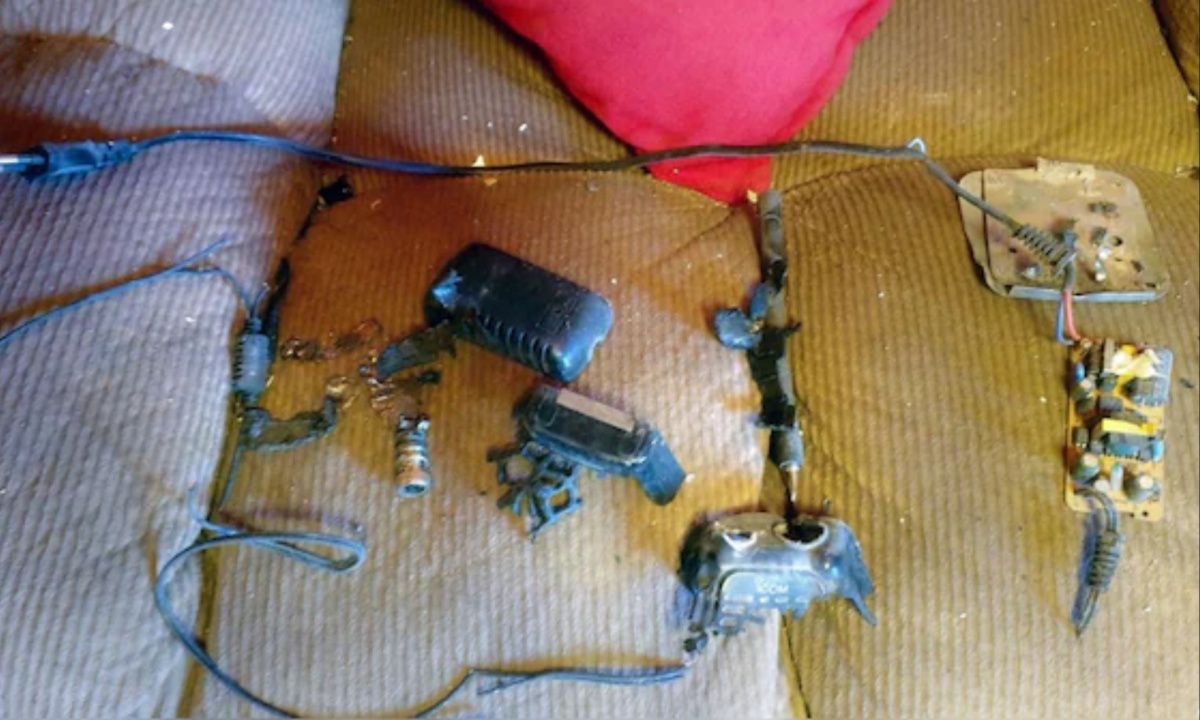Two recently retired senior Israeli intelligence officers revealed details about a covert operation targeting Hezbollah militants in Lebanon and Syria, which began over a decade ago and culminated in a deadly attack three months ago. The operation used hidden explosives in pagers and walkie-talkies that were unwittingly purchased by Hezbollah from Israel. The agents, speaking anonymously on CBS’s “60 Minutes,” explained how this intricate plan was set into motion. The first phase of the operation, which involved walkie-talkies with hidden explosives, began years ago, but the devices were not triggered until September, a day after the pagers went off.
In 2022, after Israel’s Mossad learned that Hezbollah was purchasing pagers from a Taiwanese company, the second phase of the plan was activated. The pagers were modified to fit explosives, and the team tested them repeatedly to ensure they caused harm only to Hezbollah operatives while minimizing civilian casualties. The Mossad also developed different ringtones to ensure the pagers would attract the attention of the militants. The ruse to convince Hezbollah to buy these pagers included false advertisements that promoted the devices as durable and efficient.

Israel’s Covert Operation Targeted Hezbollah with Explosives Hidden in Pagers and Walkie-Talkies
The agents explained how they used deception to manipulate Hezbollah into unknowingly purchasing these explosives. Through shell companies, including one in Hungary, they convinced a Taiwanese firm, Gold Apollo, to partner with them, all while keeping their involvement hidden. This psychological manipulation was likened to the movie The Truman Show, where Hezbollah unknowingly played a role in a reality controlled by Mossad. By the time the pagers were distributed, Hezbollah had 5,000 devices, all rigged to explode.
On September 17, 2023, Israel triggered the attack by sending encrypted messages to the pagers, causing them to detonate. The following day, Mossad activated the walkie-talkies, which also exploded, killing at least 30 people. The agents emphasized that the primary goal of the operation was not just to kill but to create a psychological impact on Hezbollah. Wounded operatives, left with life-altering injuries, would serve as living reminders of Israel’s power and resolve. The psychological impact of the attack was further amplified by the fear it created in the population, as people in Lebanon began fearing other devices might explode, even in their homes.
The deadly operation unfolded amidst the larger context of escalating tensions in the region. The attack on Hezbollah came shortly after Hamas’ brutal assault on Israel on October 7, 2023, which sparked the Israel-Hamas war. In response to the Hezbollah operation, Israel launched airstrikes across Lebanon, which resulted in significant casualties, including the death of Hezbollah leader Hassan Nasrallah. By November, the war between Israel and Hezbollah ended with a ceasefire, but the conflict between Israel and Hamas in Gaza continued, causing widespread devastation and a death toll of over 45,000 Palestinians. The covert operation against Hezbollah remains a striking example of Israel’s advanced intelligence capabilities and its strategy of psychological warfare.
